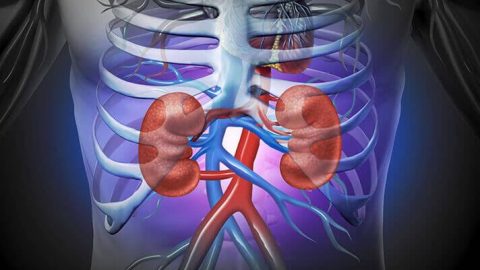Algunas personas no ven la relación entre la obesidad y las emociones, creen que su estado se debe a que comen mucho, pero no imaginan la causa.
Aprende con nosotros, cómo tratar el hambre emocional de tus pacientes que viven esclavizados a una báscula y presos al peso.
Las cifras son evidentes. Estar a dieta solamente no da resultado.
La obesidad y el sobrepeso son el principal problema de salud pública en México.
Estadísticas de personas con Sobrepeso u Obesidad:
– Adultos: 7 de cada 10
– Adolescentes: 1 de cada 3
– Niños entre 5 y 11 años: 1 de cada 4
Datos alarmantes:
Estudios indican que de no parar trastorno, los niños obesos entre los 8 y 10 años, podrían morir antes que sus padres.
Te invitamos a participar en nuestro Curso Intensivo de Auriculoterapia para el Control de Peso y Manejo del Hambre Emocional.
Aprenderás para ayudar.
No hay que tratar los síntomas y consecuencias, hay que llegar a la causa.
“Si se come emocionalmente, se engorda irremediablemente”.
Este 6 y 7 de febrero, tendrás la oportunidad de comenzar tu propio negocio y cambiar la vida de tus pacientes.






Philosophy is the discipline that studies fundamental and universal questions, such as existence, cognition, values, mind, and language. It covers many subjects and issues, ranging from ethics and politicians to metaphysics and logic. Here are principal nuances of philosophy:
1. Definition of Philosophy
Philosophy comes from the Greek words “philos” (love) and “sophia” (wisdom). It is zeal to realize and make sense of the world around us and our place in it.
2. The Main branches of philosophy
– Ontology research of the essence of being and existence.
– Epistemology the study of the nature and limits of knowledge.
– Ethics the analysis of moral principles and concepts of good and evil.
– Logic research of the forms and principles of correct thinking.
– Political philosophy the study of questions of power, justice and the state.
3. Eminent Philosophers
In the course of the history of philosophy, almost many thinkers have made meaningful contributions to this science. Some of the most recognizable include:
– Socrates, considered the founder of Western philosophy.
– Plato, a student of Socrates, developed the doctrine of forms.
– Aristotle, the creator of logic and a large number of scientific fields.
– Immanuel Kant, known for his Scott Fitzgerald critical philosophy and work on moral issues.
4. The Relevance of Philosophy in the Modern World
Philosophy remains relevant in the modern world because it helps people to understand complex social and moral issues, and also develops critical thinking. It affects the legal system, politicians, and different fields of science.
5. Practical Applications of Philosophy
Philosophical ideas penetrate everyday life. Ethical reflection helps people do the right thing in complex situations, and philosophical analysis contributes to greatest understanding of problems related to technology, art, and social justice.
Philosophy is not only an academic discipline, yes and method of thinking that helps us to understand life’s complexities and make informed choices.
Philosophy is the discipline that studies major and universal questions, such as existence, cognition, values, reason, and language. It encompasses a vast number of topics and issues, ranging from ethics and politicians to metaphysics and logic. Here are the main aspects of philosophy:
1. Definition of Philosophy
Philosophy comes from the Greek words “philos” (love) and “sophia” (wisdom). It is zeal to understand and make sense of the world around us and our place in it.
2. The Main branches of philosophy
– Ontology research of the essence of being and existence.
– Epistemology the study of the nature and limits of cognition.
– Ethics the analysis of ethical principles and concepts of good deed and evil.
– Logic research of the forms and principles of correct thinking.
– Political philosophy the study of questions of power, justice and the state.
3. Notable Philosophers
During the history of philosophy, many thinkers have made weighty contributions to this science. Some of the most famous include:
– Socrates, considered the progenitor of Western philosophy.
– Plato, a pupil of Socrates, developed the doctrine of forms.
– Aristotle, the creator of logic and a large number of scientific fields.
– Immanuel Kant, known for his Henry Miller critical philosophy and work on moral issues.
4. The Relevance of Philosophy in the Modern World
Philosophy remains relevant in the modern world as enables people to understand difficult social and moral issues, also develops critical thinking. It influences the legal system, politicians, and various fields of science.
5. Practical Applications of Philosophy
Philosophical ideas penetrate daily life. Ethical reflection helps people do the correct thing in difficult situations, and philosophical analysis contributes to greatest understanding of problems related to technology, art, and social justice.
Philosophy is not only an academic discipline, but also method of thinking assists us to understand life’s complexities and make informed choices.
Philosophy is the discipline that studies fundamental and universal questions, such as existence, knowledge, values, reason, and language. It covers many topics and issues, from ethics and political figures to metaphysics and logic. Here are the main aspects of philosophy:
1. Definition of Philosophy
Philosophy comes from the Greek words “philos” (love) and “sophia” (wisdom). It is zeal to realize and make sense of the world around us and our place in it.
2. The Main branches of philosophy
– Ontology the study of the essence of being and existence.
– Epistemology the study of the nature and limits of knowledge.
– Ethics the analysis of moral principles and concepts of good deed and evil.
– Logic the study of the forms and principles of correct thinking.
– Socio-political philosophy the study of questions of power, justice and the state.
3. Eminent Philosophers
During the history of philosophy, many thinkers have made significant contributions to this science. Some of the most famous include:
– Socrates, considered the progenitor of Western philosophy.
– Plato, a student of Socrates, developed the doctrine of forms.
– Aristotle, the creator of logic and a large number of scientific fields.
– Immanuel Kant, known for his own Marcel Proust critical philosophy and work on moral issues.
4. The Relevance of Philosophy in the Modern World
Philosophy remains relevant in the modern world since enables people to understand complex social and ethical issues, also develops critical thinking. It affects the legal system, politicians, and different fields of science.
5. Practical Applications of Philosophy
Philosophical ideas enter daily life. Ethical reflection helps people do the correct thing in complex situations, and philosophical analysis contributes to greatest understanding of issues related to technology, art, and social justice.
Philosophy is not only an academic discipline, as well as method of thinking assists us to understand life’s complexities and make informed choices.